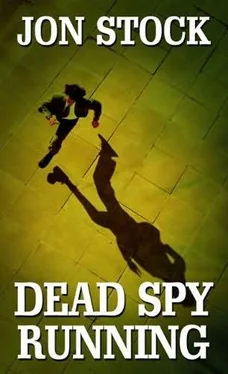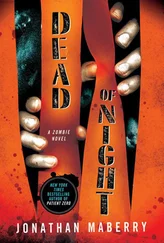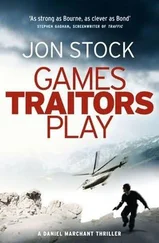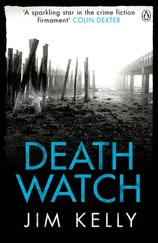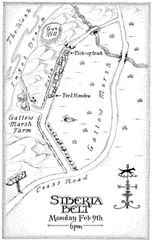Jon Stock - Dead Spy Running
Здесь есть возможность читать онлайн «Jon Stock - Dead Spy Running» — ознакомительный отрывок электронной книги совершенно бесплатно, а после прочтения отрывка купить полную версию. В некоторых случаях можно слушать аудио, скачать через торрент в формате fb2 и присутствует краткое содержание. Год выпуска: 2009, Издательство: St. Martin, Жанр: Триллер, на английском языке. Описание произведения, (предисловие) а так же отзывы посетителей доступны на портале библиотеки ЛибКат.
- Название:Dead Spy Running
- Автор:
- Издательство:St. Martin
- Жанр:
- Год:2009
- ISBN:нет данных
- Рейтинг книги:3 / 5. Голосов: 1
-
Избранное:Добавить в избранное
- Отзывы:
-
Ваша оценка:
- 60
- 1
- 2
- 3
- 4
- 5
Dead Spy Running: краткое содержание, описание и аннотация
Предлагаем к чтению аннотацию, описание, краткое содержание или предисловие (зависит от того, что написал сам автор книги «Dead Spy Running»). Если вы не нашли необходимую информацию о книге — напишите в комментариях, мы постараемся отыскать её.
Dead Spy Running — читать онлайн ознакомительный отрывок
Ниже представлен текст книги, разбитый по страницам. Система сохранения места последней прочитанной страницы, позволяет с удобством читать онлайн бесплатно книгу «Dead Spy Running», без необходимости каждый раз заново искать на чём Вы остановились. Поставьте закладку, и сможете в любой момент перейти на страницу, на которой закончили чтение.
Интервал:
Закладка:
She had just turned nine when she first sensed that all was not well between her parents. They were living in the expat community in Dubai, where her father was working, and he had come home late, as he often did. But this time she was awake. There had been a problem with the electricity in their apartment block — there was not enough power to run the air conditioning, and the sudden warmth had woken her. One of the staff had placed an old fan in the room and she lay there mesmerised by the way it turned as far as it could one way, before sweeping back in the other direction. But above its hum she gradually became aware of shouting downstairs, and then screaming, followed by slammed doors and silence.
She had found her mother curled up in a corner of the kitchen, their Indian maid holding a bloodied cloth to her forehead. Her mother smiled weakly when she saw Leila, but the maid gestured crossly for her to go back upstairs.
‘It’s OK,’ her mother had said, beckoning Leila towards her. She walked tentatively across the kitchen and sat down beside her mother, watched anxiously by the maid. ‘It’s OK,’ her mother repeated, putting a shaking arm around Leila as the maid retreated.
They must have stayed like that for most of the night, hunched together on the marble floor in the heat of a Dubai night, the weak yellow lights flickering. Her mother explained how her father was under a lot of stress at work and sometimes drank too much whisky, hoping that it would make him feel better. But it just made him angry, and when he was angry he wasn’t himself, and did silly things.
In the years that followed, Leila and her mother learnt to be out of the way when he was not himself, but Leila knew that he continued to vent his whisky-fuelled fury on his wife. Not even a burqa could disguise the black eyes. Her father’s long hours and frequent trips abroad meant that she had always been closer to her mother than to him, but his violence bonded them further, uniting them in a mixture of shame and solidarity. She had never forgotten that night, the sight of her mother crying, and could never forgive her father, whose light in her life went out.
All she could do now, slumped on the floor of her bare embassy room, was to fulfil her side of the deal and hope that the voices at the end of the phone in Tehran would honour theirs. But before she could think what that deal might bring, the evening stillness was split by a sound that she knew at once was not thunder.
31
Marchant felt the weight of a body lying on top of him, but he didn’t realise it was Uncle K until he tried to move out from under his heavy frame. Other people were stirring on the bar floor all around him. For a moment, in the dark silence, Marchant was back at the marketplace in Mogadishu. But then the moaning started, guttural cries of primitive pain, and he remembered the quicksilver shards dicing the air, the compression, the chilling cacophony of disintegrating glass.
‘Uncle K, are you OK?’ Marchant asked, trying to shut out the sweet smell of cauterised flesh. It was a smell he hated more than any other, one that had never left him. Now, five years later, the same nagging thoughts were suddenly back once again: could he have done more about the man at the bar?
He was kneeling beside Uncle K now, checklisting his own body as he spoke. He put a hand briefly to his face, touching warm blood as he bent over the colonel. The old man’s features were still intact, the plump, putty-faced cheeks and pursed, rosebud mouth, but the angle of his lower body was too jack-knifed for a seventy-year-old.
Marchant looked at the debris all around him, the lights torn from the ceiling, the upturned tables, shredded curtains. He saw a plastic bottle of mineral water on the floor, a few feet away from him. Reaching over, he dribbled some onto the colonel’s dusty lips, spitting grit out of his own mouth. Slowly, the colonel’s lips began to move. Marchant leant closer, cupping one hand behind his head.
‘You must go,’ the colonel whispered. ‘They will try to blame you for this.’
‘Who will?’
But the colonel had lost consciousness again. Marchant put the bottle to his mouth, spilling water over his lips and chin. Blood was seeping now from the corner of his mouth. The colonel opened his eyes, coughing feebly.
‘You must go,’ he urged. ‘Om Beach, near Gokarna. Ask for…’ The next word was lost in the blood and saliva. ‘…brother Salim at the Namaste Café.’
‘Leila, I want you to get down to the club and slip inside the cordon, assuming the Delhi police have put one up. It’s usually a free-for-all at these things. They might do Golden Temples, but crime-scene golden hours? Give me a break.’
A ripple of polite laughter moved around the room as Monk Johnson, head of the Presidential Protective Detail, addressed a room of ten officers, a mix of Secret Service and CIA. Behind him, a large TV screen was showing library footage from NDTV of the Gymkhana Club before the blast. Cameras had yet to reach the scene. Leila had been tempted to head out into the Delhi evening as soon as she heard the explosion, but she had been summoned to the meeting within minutes. The station was already on a state of high alert: in seventy-two hours the new President of the United States would be flying in to Palam military airbase, five miles from Delhi, as part of his four-country tour of South Asia.
‘I’ve just come off the phone to the Director of the Secret Service,’ Johnson continued. ‘He says POTUS is adamant the tour is still on. The best we can do is buy ourselves a little time: the Islamabad leg could be brought forward, but the Indians won’t like it — they’ve insisted all along that they go first. They tested their nukes before Pakistan, and they want to make damn sure they’re the first to shake the new President’s hand.’
‘You’re assuming this is a Pak thing, right?’ asked David Baldwin, head of the CIA’s Delhi station. He was sitting behind Leila.
‘You tell us. It’s got to be an option. The Gymkhana Club is a colonial hangover, full of army brass.’
‘First up is Salim Dhar. General Casey was due to go there tonight, but cancelled.’
‘Thank God,’ Johnson said.
‘Vivek?’ Baldwin said, ignoring Johnson.
‘Dhar’s exact location on the grid is still to be confirmed, sir,’ Vivek Kumar said, ‘but it has all his hallmarks, particularly if Casey was the target.’
Leila had already been introduced to Kumar as a fellow newcomer. One of the Agency’s brightest analysts, he had been flown in from Langley earlier in the week, and knew more than anyone about Salim Dhar. He knew all about Daniel Marchant, too. Marchant, he said, had left Poland and was already somewhere in India.
‘Widespread military collateral, high-profile US target,’ Kumar continued. ‘We can’t rule out Daniel Marchant either. Right now, that whole situation’s a little complicated. He’s just become the subject of an ongoing level-five covert run by Clandestine, Europe.’
‘Tell me about it,’ Baldwin said, glancing at Leila. ‘I’m speaking to Alan Carter in ten.’
‘OK, let’s re-meet in two hours,’ Johnson said. ‘Unless another bomb goes off. What’s wrong with Texas? Why can’t POTUS go there and shake a few hands?’
Marchant didn’t know who he was fleeing from as he picked his way through the wreckage of the bar and climbed out of a large broken window. It went against every instinct to leave Colonel K, but there had been an urgency to his voice that persuaded Marchant to leave.
He stumbled across the lawn, still dazed, glancing back at the wounded building, curtains lolling from its windows like lacerated tongues. No one could blame him. The Gymkhana Club reception would confirm that a respected Indian colonel had signed him in. But Uncle K was an old friend of his father. He was also travelling as David Marlowe, not Daniel Marchant. Uncle K was right. Daniel was on the run, and once his presence at the club had been discovered, his name would be in the frame. If he could be blamed for the marathon, they would try to pin this one on him too. He thought of the look the man at the bar had given him, purposefully catching his eye. Who was he? Who had sent him?
Читать дальшеИнтервал:
Закладка:
Похожие книги на «Dead Spy Running»
Представляем Вашему вниманию похожие книги на «Dead Spy Running» списком для выбора. Мы отобрали схожую по названию и смыслу литературу в надежде предоставить читателям больше вариантов отыскать новые, интересные, ещё непрочитанные произведения.
Обсуждение, отзывы о книге «Dead Spy Running» и просто собственные мнения читателей. Оставьте ваши комментарии, напишите, что Вы думаете о произведении, его смысле или главных героях. Укажите что конкретно понравилось, а что нет, и почему Вы так считаете.
